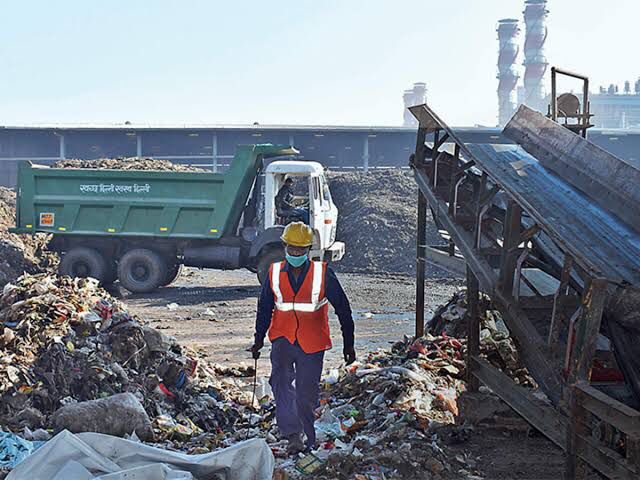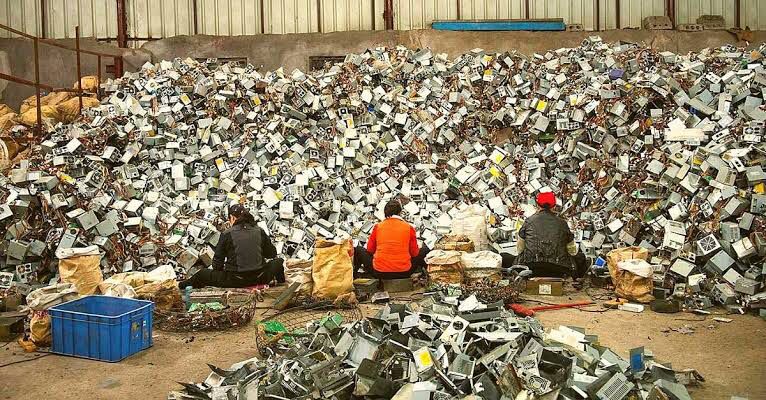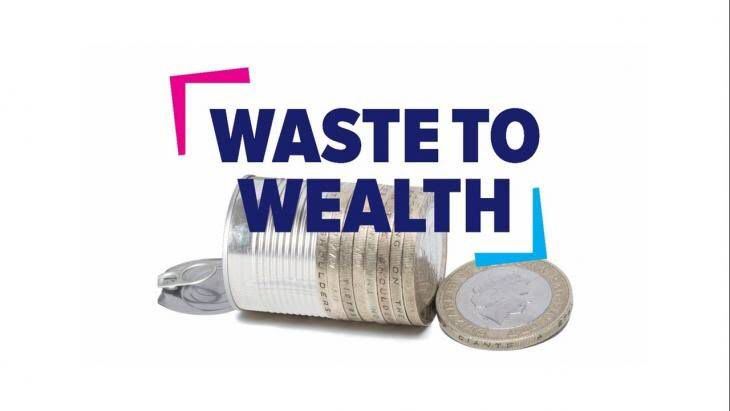
The increasing wastes around us, endangered climate and risk to life has made it very important for Government as well as corporates to focus on developing a proper waste management system. Efficient waste management is imperative for building a healthy and sustainable environment.
(BY Ms. Ananya Singh*)
” Waste is worst than loss. The time is coming when every person who lays claim to ability will keep the question of waste before him constantly. The scope of thrift is limitless.
-Thomas A. Edison.
India is turning into one big garbage dump. Urban India is the world’s third largest garbage generator and by 2050 this waste is expected to rise up to 436 million tonnes. These figures may vary due to the waste generated by Covid-19 affected people. This means the picture is darker than we assume.
What is waste?
Generally speaking waste is a collection of unwanted things generated by the average household while consuming and using items required for their livelihood. The problem lies in the fact that we are not dealing with it in a sustainable way.

Waste management:
Students are taught in school that everything in this world is made up of energy and energy can neither be created nor destroyed, it can only change its form like chemical energy to electrical energy or light energy to sound energy.
Similarly all the waste that is generated contains some or the other sort of energy which can be reused and recycled into a new and usable product.One person’s trash is another person’s asset.
The key to efficient waste management is ensuring proper segregation of waste at source and ensuring that the waste goes through different streams of recycling and resource recovery.
Waste management, at its heart, is the implementation of the very well known concept of ‘Reduce’, ‘Reuse’ & ‘Recycle’. The concept of
Waste management is not very prominent in India as it has always been seen as a moral responsibility and duty but not as a habit to inculcate.
Landfills: A major problem
In its 2009 report on solid waste generation, CPCB (Central Pollution Control Board) indicated that around 62 million tonnes of solid waste was produced every year in the country, of which less than 20% i.e,12 million tonnes are treated. The remaining untreated waste occupies a large usable land, thereby increasing the health risk by contaminating the air, water and food. The pollution and climate change issues are another aspect of the landfill sites.
It affects the ecosystem in burgeoning ways.
Public health:
These landfill sites, as per the rules prescribed by MOFECC (Union Ministry of Forest Environment and Climate Change) in 2016 should have been kilometres away from the nearest human habitation but they are right next to housing colonies. People are forced to live in these areas admist the unhygienic conditions caused by these untreated wastes.
Climate:
The trash dumped in landfills emits methane gas and open landfills present 91% of all methane emissions.
Wildlife:
Concerning the biodiversity our waste problem is severely damaging the terrestrial as well as aquatic animal’s life. Fishes are trapped under the plastics which has filled the oceans.
It’s high time that government recognises these potential dangers and instead of constructing new landfill sites, develop innovative methods of disposing and recycling waste. The condition is such that national capital Delhi has only three dumping sites – Bhalswa, Gazipur and Okhla. Among them Gazipur is already running to be taller in height than Qutub minar and Taj Mahal.
Bhalswa and Okhla have already been declared exhausted but untreated waste is still dumped there.
There are 6 kinds of waste as described by CPCB and MOFECC:
1.Hazardous waste:
Hazardous waste includes all kinds of items that can be harmful to humans.Discarded cans of paint and pesticides which release harmful chemicals, e-waste such as batteries and mobile phones which may cause fire and Bio medical waste like used syringes , blood stained cotton and bandage and used masks and PPE kits.
CPCB in its revised report of April 2020, prescribed rules for efficient handling and management of bio- medical waste. However, this is yet to be observed on the ground level.
2.Plastic Waste:
Plastic Waste is neither biodegradable nor recyclable. In 1979, market for plastics was initially seeded by the state owned Indian petrochemicals and it was only after 1994 that plastic soft drink bottles became a visible source of annoyance.
3.E-waste:
While digital India is taking giant strides with over 58 crore mobile users and hundred crore handsets, there is no nationwide inventory of this e -waste generation yet.

E-waste has importance in terms of valuable metals extracted which when unprocessed & unutilized goes into waste. This results in loss of revenue and resources due to absence of effective waste management system.
4.Bio medical waste:
Discarded hazardous medical waste leads to an unintended release of drug resistant microorganisms in the environment.
According to WHO, 49,000 people developed multidrug resistant TB globally and drug resistance has also started to compensate fight against HIV and malaria as well.
Trash contaminated with bodily fluids from hospitals, quarantine centres and home quarantine pose a daunting challenge for waste management authorities, sanitation workers and waste pickers alike as even loosely discarded face masks, gloves tissues, cotton swabs, syringes from households can likely be carriers of virus even before a patient is diagnosed with the disease.
5.Municipal Solid Waste(MSW):
This as the name suggests refers to the solid waste collected daily by the municipal corporation workers (the Safai Sathis) who blow a whistle and collect door to door waste.
6.Construction and Demolition Waste: (C & D Waste)
This includes the construction and demolition waste like bricks, concrete, stone, hard core – subsoil, topsoil, timber, glass gypsium, ceramics and also plastics.
The Ministry of Environment Forest and Cimate Change in 2010 put an annual estimate of C & D waste at 10 to 12 million tonnes as per state laws . But there were hardly any state laws! The huge particulate matter due to such waste is highly dangerous.
It is not sufficient to know the idea, if its not implemented.
Things That can be done:
It’s advisable to follow a 4 bin system. This means simply segregating house waste. Disposing kitchen waste or organic waste in a green bin, Inert waste (waste which is neither chemically or biologically reactive) in a black bag, a white bin for waste that is recyclable like plastic bottles, milk packets, oil, and a black bin for all the hazardous waste materials.
About 50% landfill related issues can be solved and more than lakh jobs be created by only managing the biodegradable wastes like carton, wood, stones etc.
An organisation named RUR Greenlife has collected more than 68 lakh cartons from Mumbai & recycled them to make more than 400 school desk and 1 Lakh notebooks & several other stationery items and donated it.
Business opportunities in waste management:
Around 100 cities are to be developed as smart cities. Civic bodies have to redesign long term vision in solid waste management & rework their strategies to fit the changing lifestyles.
The concept of common waste treatment facility is being widely promoted and accepted as it uses waste in the form of resource either by using it as a co-fuel or co- raw material in manufacturing processes.
This has led to rise in the PPPs (Public Private Partnership) models in this industry. The biggest example is IEISL (IL&FS Environmental Infrastructure & Services Ltd) owned by Ever Enviro Resource Management which is an integrated waste management company focused on scientific and sustainable solid waste management in lndia.
Waste management is future:
Government under ‘skill india’ mission has opened up better opportunities for waste management businesses. The GSDP ( Green skill development program ) is a 6 month residential program free of cost only to train professionals for such waste management. After this the trainee can choose a job in any one or more than field of waste management.
The increasing wastes around us, endangered climate and risk to life has made it very important for Government as well as corporates to focus on developing a proper waste management system. Efficient waste management is imperative for building a healthy and sustainable environment.
(*Writer is a Student of Faculty of Commerce, BHU and Member at FETC)
